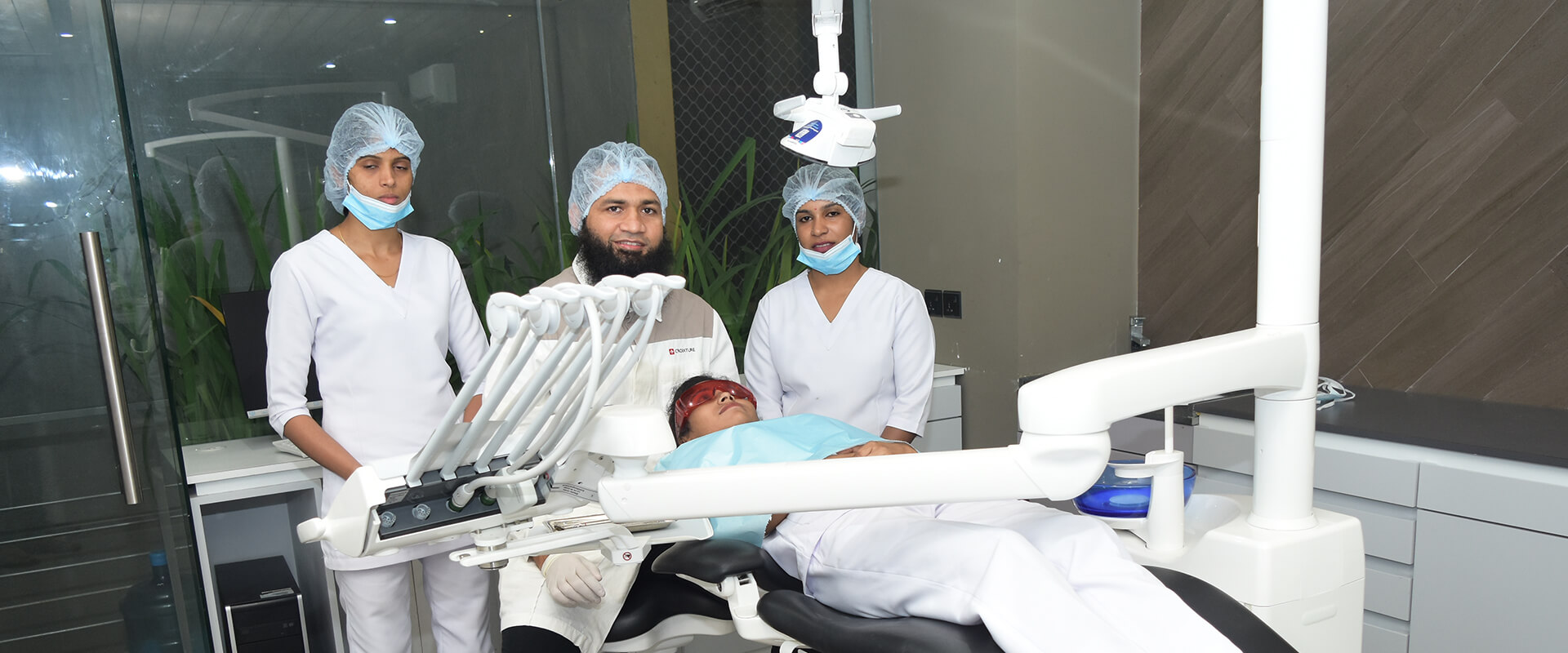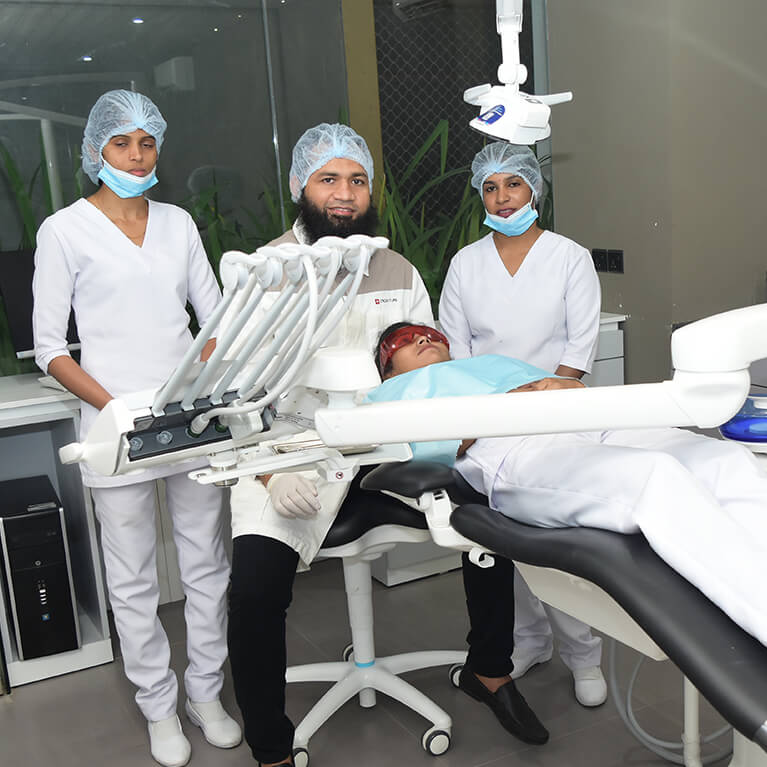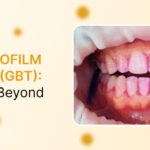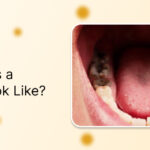10 tips to get rid of dental anxiety
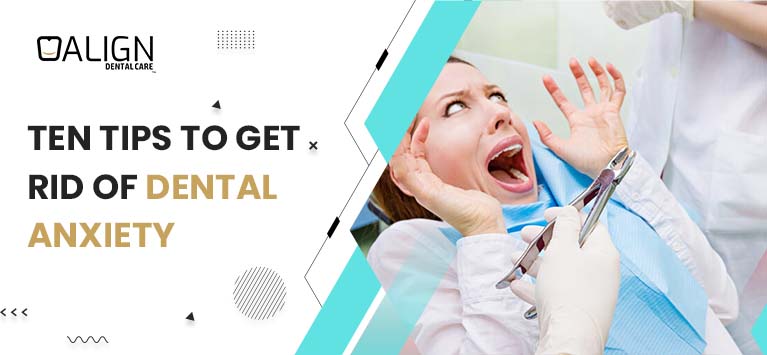
Do you find visiting the dentist terrifying? Despite being more prevalent, dental anxiety is easily manageable.
Your oral health will be negatively impacted if you cannot overcome your dental phobia. So throw your fear out by knowing what dental anxiety is and including its symptoms, reasons for existing, and some tactics and strategies for overcoming it in this blog post.
Read on to overcome your phobia!
Dental anxiety: What is it?
Dental anxiety is the anxiety, dread, or tension related to a dental environment.
Odontophobia, often known as dental phobia, is a relatively frequent cause of people skipping their scheduled exams for oral health. Some individuals are genuinely terrified to visit the dentist.
Signs and symptoms of dental anxiety
Here are some symptoms that indicate you have dental anxiety.
- Increase in heartbeat rate
- Using humor or aggression to disguise nervousness
- Low blood pressure
- Sweating
Causes of dental anxiety
- Fear of pain
- Poor experience
- Embarrassment in allowing others to touch your mouth
- Fear of needles and drill sound
- A poor impression of dentists
- Panic due to claustrophobia
Tips and tricks to overcome dental anxiety
We know that there will always be remedies if there is an issue. Here are some tips and tricks for a calm and relaxed dental checkup.
Pick the ideal dentist for yourself.
First and foremost, you must select a reputable dentist who specializes in helping those who have anxiety and fear of the dentist. Additionally, pick a dentist who treats you well and who gets positive feedback from their present patients.
Share your anxiety.
Sharing your feelings can have a significant impact on how things turn out. Discussing your fears with your dentist may help you overcome them and maintain your comfort. There are others you can discuss your anxiety with besides your dentist. You can seek counseling or talk to your friends and family about your anxiety.
Deviation may be advantageous.
If there is a television in the clinic, you can watch films, videos, and other media there. If not, you can use your tablet or mobile device. Get relaxed by endeavoring deviation strategies like hearing your favorite playlists, audio files, and podcasts. Even engaging in conversions helps you distract from dental fear.
Engage in deep breathing exercises.
Breathing is the key to remaining calm and relaxing in some situations. Breathing can bring physiological changes to our body, like reducing the heart’s pulse rate and lowering blood pressure. Additionally, the blood stress level can also be lowered.
CBT (Cognitive-Behavioural Therapy).
CBT is a form of psychological treatment. It will help people manage mental health conditions like stress, depression, phobias, and anxiety. This treatment approach helps you recognize negative thoughts and find ways to replace them with positive ones. So, this therapy can be used to treat dental phobia and its associated conditions.
Request for sedative solutions.
Sedatives are one of the options. Ask your dentist about sedatives using relaxation techniques if you cannot reduce your anxiety. During dental procedures, sedation is used to keep you comfortable. Nitrous oxide, oral conscious sedation, and intravenous (IV) sedation are available.
Bring a support person along.
A friend can sometimes be all you need to grasp your hand and reassure you that everything will be good. Ask a friend or member of your family to accompany you if you’re nervous about receiving therapy. A friend may sit by your side in the room during the procedure.
Skip the caffeine.
Before a dentist appointment, pay attention to your food. It’s common knowledge that foods heavy in sugar and caffeine can cause jitters, so it’s best to avoid them before your visit. Instead, opt for protein-rich foods, as they have a soothing influence.
Establish non-frantic times for your appointments.
Choose a time for your appointment that is convenient for you. Avoid rushing to your appointment on time because doing so will make you uptight and anxious. You might find it beneficial to lessen your worry when fewer patients are scheduled.
Take breaks.
You can relax for a while between dental procedures by taking pauses. You can utilize a few signs to let your dentists know you need a rest. As a result of your mind and body relaxing when needed, this will lower your anxiety level.
Bottom Line
It’s not difficult to overcome your dentophobia. Your dental anxiety should never take you away from your path toward maintaining excellent oral hygiene. It’s essential to be open about your anxiety, consult a dentist, and share your problems. Follow these tips to eliminate anxiety and maintain excellent oral hygiene through regular dental checkups.
All you need to know about a single misaligned tooth
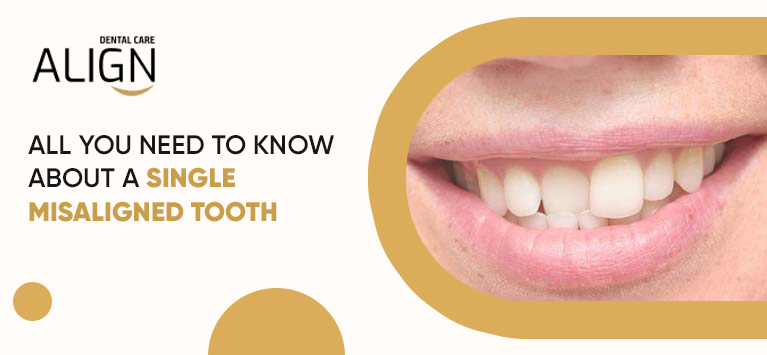
What is snaggletooth?
A snaggle tooth is a single misaligned tooth that differs from the rest of your teeth in shape or placement. Depending on how the tooth is misaligned , you may face discomforts and may feel difficult during brushing and flossing in certain areas.
The phrase “snaggle tooth” is sometimes used colloquially to describe a single tooth that is noticeably out of alignment, giving the person’s smile a somewhat crooked or uneven appearance.
Causes of snaggletooth
Numerous things, including genetics, childhood practices, and problems with oral development, can contribute to this illness. Let’s discuss in detail. Your teeth will twist or move one or more teeth backward or forward if there is not enough room for them to line up properly.
Genetics
Genetics has an impact on how teeth naturally align. There is a greater likelihood that their children may experience similar dental issues if their parents or other close relatives have misaligned teeth
Thumb Sucking or Pacifier Use
Using a pacifier or thumb sucking for an extended period of time throughout early childhood might cause teeth to erupt out of alignment
Early Tooth Loss
Losing a baby tooth too soon without taking the correct steps to maintain the space, might cause the teeth next to it to shift and become misaligned
Jaw Growth Disorders
Problems with jaw development and growth can also cause dental misalignment
Chronic mouth breathing
Chronic mouth breathing,which is frequently brought on by allergies or other conditions, can gradually change the position of teeth
Poor or changing tongue posture
An improper or shifting tongue position might alter the position of teeth
Ways to fix a snaggle tooth
The most important determining criteria for the type of therapy needed are age and the severity of the misaligned teeth.
In cases of modest crowding, dental bonding or veneers may be used to improve the tooth’s appearance without requiring comprehensive orthodontic treatment.
Veneers are very thin porcelain or composite shells that are manufactured specifically for each tooth’s shape. When a person has two crooked teeth or slightly damaged snaggle teeth, veneers might be quite beneficial.
When teeth are often out of alignment, metal braces or clear Aligners are preferable.All you need to know about snaggletooth
Braces
One of the most widely used techniques for straightening outcropping teeth is braces. They work by exerting pressure on your teeth with brackets and wires that are attached (one on each tooth).
Braces can be worn for as little as a few months or as long as two years, depending on a person’s oral health. To help stabilize your teeth when the braces are removed, you will need a retainer for the rest of your life
Invisible Aligners
Because of its effectiveness and user-friendliness, aligners are a popular alternative to braces for teeth that are out of alignment. Aligners are invisible plastic trays that are attached to your teeth and function similarly to braces.
The fact that aligners are transparent objects that allow you to express yourself freely is one of their main advantages. You are not required to adhere to any dietary restrictions, and maintaining them is very simple
Tooth Contouring
Tooth contouring is the least expensive solution and is recommended to treat mild cases of protrusion. Without seriously affecting the enamel, small amounts of the tooth will be removed so that the cosmetic issue can be fixed to a great extent
Surgical options
In severe cases where the misalignment is caused by jaw problems, surgery may be required to straighten the teeth and jaws.
Bottom Line
One or more teeth that are obviously misaligned, projecting, or sticking out from the rest of the teeth’s regular alignment are referred to as “snaggletooth” conditions in dentistry. Even if it has become fashionable in recent years, there is no need to clumsily stare at your crooked teeth.
Snaggletooth refers to a particular type of tooth misalignment in which one or more teeth are positioned differently from the neighboring teeth. This may result in the smile looking less aesthetically attractive.
It is advised that you see a dentist or orthodontist if you have misaligned teeth so that they can offer personalized advice and treatment choices depending on your particular condition.
5 possible reasons behind the salty taste in your mouth
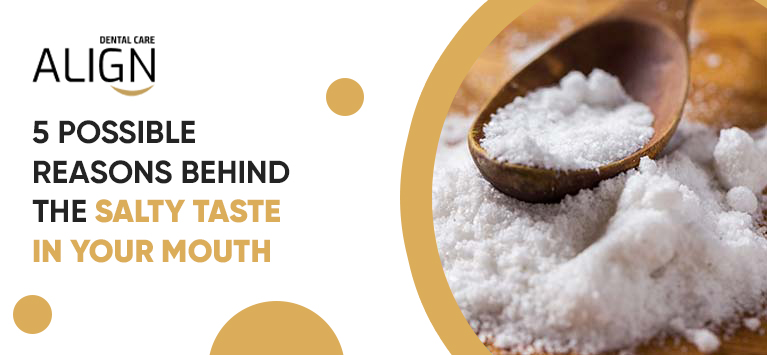
It is common to have a salty taste in the mouth for a few minutes after eating processed potato chips. You might feel such salty taste in your mouth after having various snacks.
Do you notice such salty taste even though you do not snack? If you sense it frequently, this blog post is for you. It might be an indication of abnormal happenings that take place inside your body.
Keep reading to know the possible causes of salty taste inside your mouth.
Read More…4 dental causes of snoring you might not know
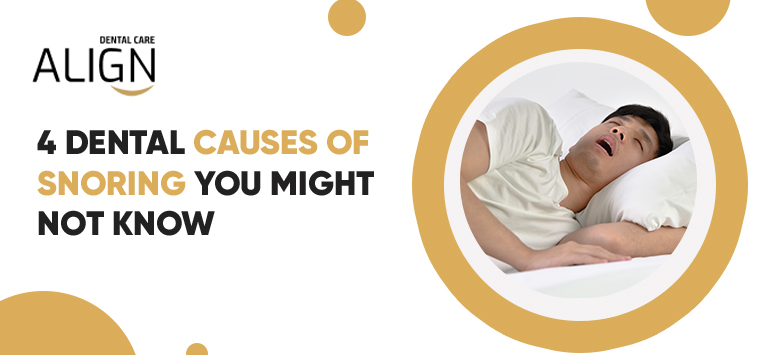
Snoring is a benign condition until it becomes chronic. People of all ages snore at times, but regular snorers are more likely to develop serious ailments like stroke, blood pressure, heart problems, etc.
It happens due to obstructed breathing while sleeping. When the airway is partially blocked or narrowed, air cannot flow freely in the airway.
In such circumstances, soft tissues in the upper airway vibrate against each other while breathing, followed by producing a harsh sound. As snoring has roots in sagging tissues in the upper airway tract, various factors like nasal congestion, overweight, and alcohol consumption are responsible for it.
Likely, certain dental problems also provoke snoring. We have seen many teeth grinders suffering from snoring.
In this blog post, our dentists list a few dental conditions that can lead to snoring. Keep reading.
What are the dental causes of snoring?
Abnormalities in teeth and oral tissues can affect the physiology of our mouth, having aftereffects like jaw structure changes, narrowing down the airway, etc. Researchers found that the following oral problems increase the likelihood of developing snoring:
Missing teeth
Teeth play a crucial role in preserving the structure of your mouth and jaw. If you ignore replacing a missing tooth, it will make your mouth collapse inward. It is followed by bone loss in the jaw or a shrinking jaw. In such circumstances, the tongue has less room inside the mouth to sit comfortably, so the tongue obstructs the airflow into and out of the mouth. Hence snoring occurs.
Moreover, it is hard to close the lips correctly when bone resorption occurs. It leads to breathing difficulties and snoring.
Wisdom teeth eruption
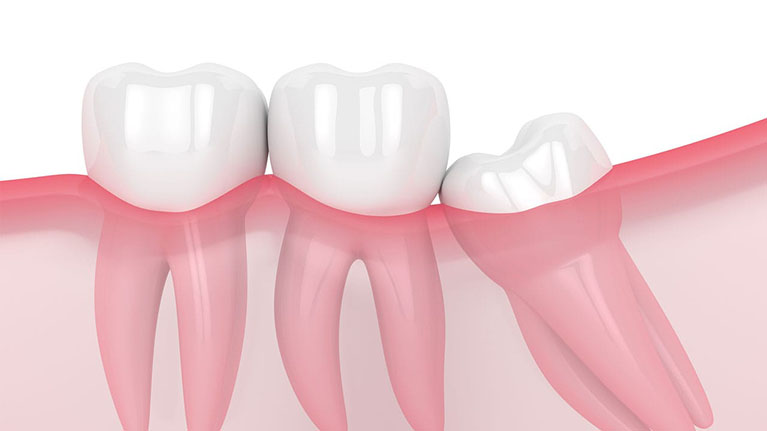
Wisdom teeth (or) Third molar teeth generally erupt between 17 and 25. As these teeth erupt lately, our mouths do not have sufficient space to accommodate the wisdom teeth. Hence they will erupt partially or come in awkward angles, causing various discomforts like pain, overcrowding of teeth, etc.
Moreover, the soft tissues surrounding the partially erupted teeth are susceptible to infection and become inflamed. This condition is called Pericoronitis. Pericoronitis patients would keep their mouths open while sleeping. As it makes the victims breathe through their mouths instead of their nose, they start to snore frequently.
Misaligned jaw
Temporomandibular joint is where our jaw bone is connected to the skull. It should be well-aligned for the regular functionalities of our mouths. When it is misaligned due to habits like teeth grinding and clenching of teeth, the lower jaw tends to stay far back from the mouth. It will upset the jaw bone’s support to the tongue hence that the tongue will partially obstruct the airflow, causing snoring.
Throat muscle spasms
When muscles in the throat contract too much (i.e.) relaxed excessively, it gives a feel of a large object stuck in the throat. This condition is called throat muscle spasms or Cricopharyngeal spasms.
Such relaxed tissues in the throat block the airways and vibrate against each other with airflows, leading to snoring.
Bottom line
Snoring begins with obstruction in breathing. Aside from factors like age, sleeping position, lifestyle changes, and bodily disorders, various dental ailments also block the airway and make tissues in the throat vibrate. The more forceful the airflow becomes, the more the harsh sound it produces.
If snoring is left untreated, it will cause oral problems like dry mouth, cavities, gum diseases, etc. Moreover, it is associated with problematic health conditions like hypoxia, type 2 diabetes, etc.
Luckily, you have various snoring treatment options like CPAP machines, thanks to advancements in dentistry. We recommend consulting a dentist if you notice symptoms like pain in teeth and jaw while getting up from bed, gasping for breath, swelling in gums.
It is because they indicate oral ailments cause your snoring problems.
7 Easy Home Remedies To Cure Bad Breath
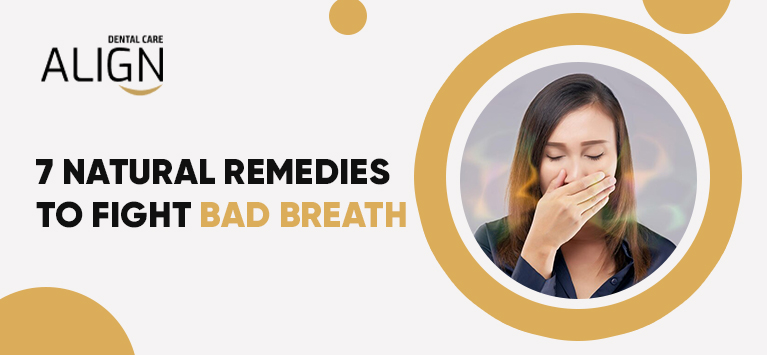
Bad breath, generally known as Halitosis, is a common but unpleasant and embarrassing condition that affects many people. The most common causes of halitosis are poor oral hygiene and certain foods or drinks. If you don’t brush and floss frequently, Plaque, a tiny film of bacteria, forms on your teeth. Over a period of time, Plaque causes a bad odour and tooth decay if it is not removed by dental professionals.
Read More…What does gum line cavity mean?
Cavity is the most common dental problem that affects many people. According to the National Oral Health Survey of India, 69.3 percent of people suffer from tooth cavities (in the 35–44 age group). It can form anywhere on the teeth.
Many people do not know the difference between gum line cavities and other types of cavities.
This blog will explain to you in detail what gum line cavities are, what causes them, and how to treat them.
What is gum line cavity?
A gum-line cavity is one of the common dental conditions that affect the space between the gums and the teeth. Usually, this occurs if the root of a tooth gets exposed as a result of receding gum tissue, leaving them vulnerable to tooth decay or severe toothache. It is caused by pressure on these sensitive places.
In some cases, the gum line might develop cavities that reach the crown and the root.
However, a more extensive treatment might be required to prevent the cavity from growing larger.
Read More…Why does coffee make your mouth dry?

For many individuals worldwide, a morning would only be complete with a cup of coffee. As the drink has a stimulating impact on people because of its caffeine content, many people would love to begin their day with this drink. This blog article is for you if you are one of such persons.
You might sense a sort of dryness in your mouth after having a cup of coffee. Right?
Here, our dentists have clearly explained the link between such a drought sensation in the mouth triggered by caffeine. Keep reading to get tips to tackle this problem.
Read More…Everything You Need to Know About Teeth Pulpotomies
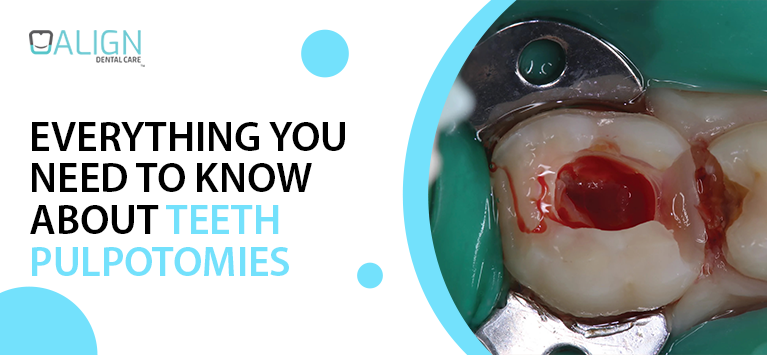
A pulpotomy procedure involves removal of coronal pulp while trying to preserve the health of the remaining radicular pulp tissue.
It is one of the most widely used methods to save infected, decayed teeth. Your dentist might recommend it if you or your child has a severe cavity and pulpitis, an inflammation of the pulp inside the tooth.
What is meant by Pulpotomy?
Read More…What is sleep apnea? Symptoms and exercises to fix this problem
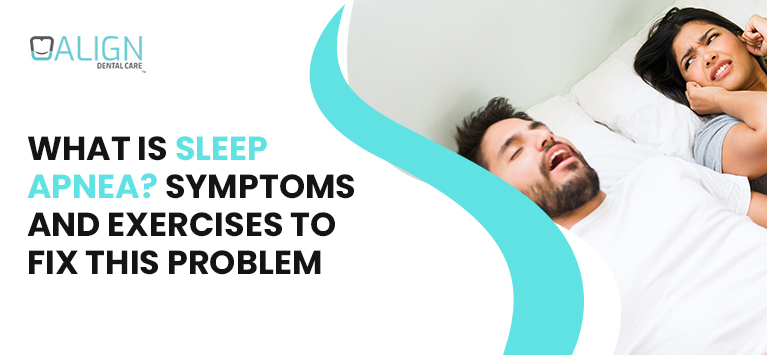
Sleep apnea is a condition where the person’s breathing stops or repeatedly starts during sleep. You may experience daytime sleepiness and loud snoring.
People with sleep apnea are most likely to have obstructive sleep apnea.
This usually occurs when the upper airway is blocked. The second type of sleep apnea, called central sleep apnea, is caused by a problem with the nervous system. This can happen briefly, but it will repeatedly occur in sleep. They may then snort or take deep, shallow breaths.
Untreated sleep apnea can causes complications like heart disease or depression. You may feel drowsy, and this increase your risk of being involved in an accident while driving or at work.
Read More…All you need to know about tooth nerve damage
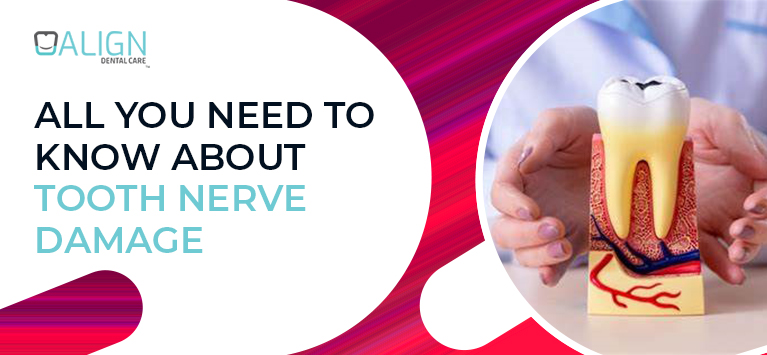
The nerves of a tooth are located in a vascularized connective tissue called pulp chamber in the centre of a tooth. Damage in the nerves surrounding a tooth is due to dental trauma or improper dental procedures; its aftereffects like burning sensation, numbness, and others are either temporary or permanent.
How does tooth nerve damage happen?
Unexpected dental injuries like deep cracks that extend to a tooth’s pulp chamber and constant pressure from teeth grinding and clenching expose the injured tooth’s nerve endings. Thus various external stimuli acquire a way to access the tooth nerves. They frequently strain, irritate the nerves and eventually lead to severe damage to the nerve fibres.
On rare occasions, badly executed dental operations like putting fillings close to the nerve endings, placing implant posts longer than they should be, and faulty pulp chamber closure during endodontic procedures can also damage a tooth’s nerves.
Read More…




